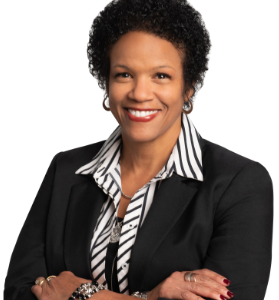4 Ways Institutions Can Create a Stackable Pathway Toward For-Credit Degrees
By Dr. Jennifer King, Vice President, Workforce and Education
Continuing education is at the right place, right time. The findings from the 2023 State of Continuing Education survey describe the competing priorities institutions currently face between stated goals for non-degree programs and the supportive allocations of resources. Some institutions may be missing a real opportunity to leverage continuing education as a pathway to an academic degree through workforce development.

Bisk Education effectively collaborates with community organizations, corporations and partners with educational institutions to sustain a viable workforce through continuing education. Our recommended primer for success is the stackable certificate.
“Stackability” refers to content purposefully built and offered as a non-credit pathway into or through an academic degree providing learners with tangible outcomes. The completed certificate “stacks into” the degree and two objectives are accomplished. The learner receives employable skills for a career pathway and congruently can use the “stack” as an entryway to an academic degree.
However, there is the challenge of having the necessary resources to make this happen. Stackability does not require the creation of brand-new content, which can be a big lift in terms of instructional design and faculty capacity. Continuing education can capitalize resources by repackaging existing content for a stackable certificate. Three options include the use of:
- Archived Content. Courses that have been archived by an academic department and can be resuscitated for a non-credit certificate.
- Course Modules. Individual course modules can be pulled out and repackaged into a mini stack.
- Fundamental Courses. Introductory-level or foundational courses can serve as a one-off offering as a non-credit-bearing course.
According to the survey, 76% of those who responded stated institutional barriers present the biggest challenge to creating a pathway from non-credit courses to credit-bearing ones.
Bisk recommends four workarounds to these barriers:
- Offer Credit Transfer. Learners can earn college credit toward a degree program for prior completion of an approved course or certificate.
- Apply a Progress Transfer. Learners complete assignments in a version of a course that counts towards the degree course once enrolled in the degree program.
- Create an Admissions Pathway. Learners gain admittance into a degree program based on their academic performance in a series of approved non-credit courses.
- Try Before You Apply. Learners take a single class to assess topics, materials and instructors to determine whether the program is a good fit.
Bisk is poised to partner with continuing education providers to maximize resources and create pathways through their non-credit offerings into for-credit degrees, referred to as the “stackable” certificate.
Dr. Jennifer King is the Vice President, Workforce and Education and plans workforce development and career pathways strategies with her colleague, Dr. Brenda Berube, Director, Workforce and Education. Connect with them or head to bisk.com to learn more about how you can expand your institution’s offerings.


